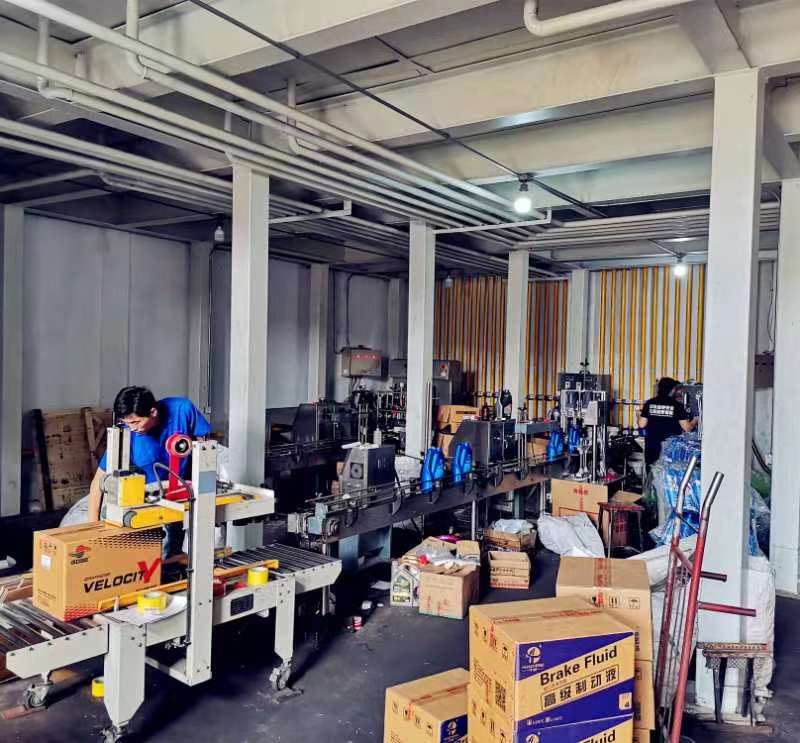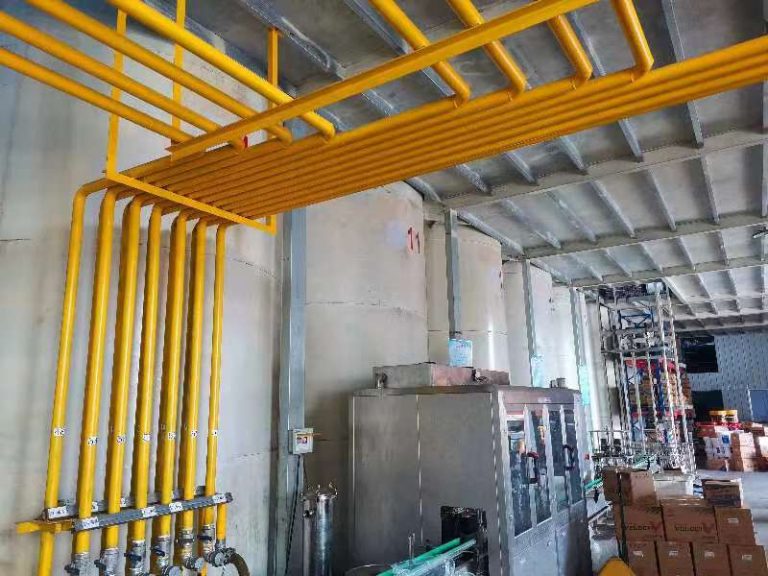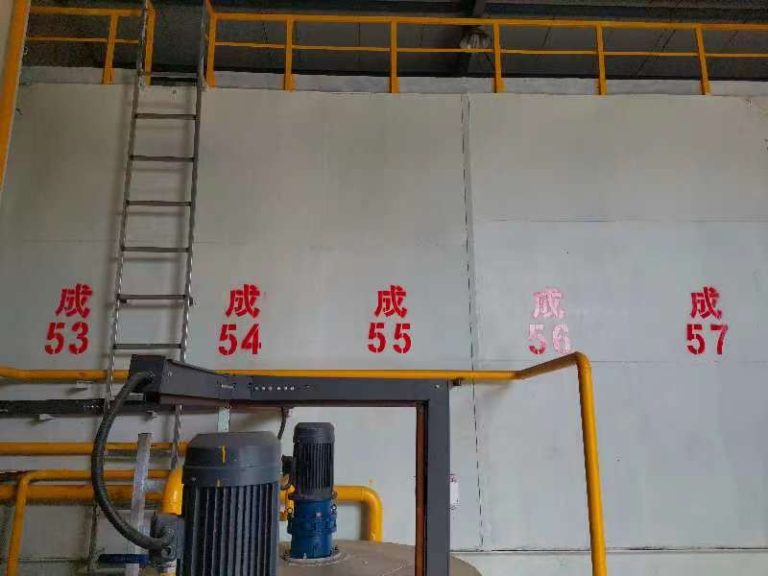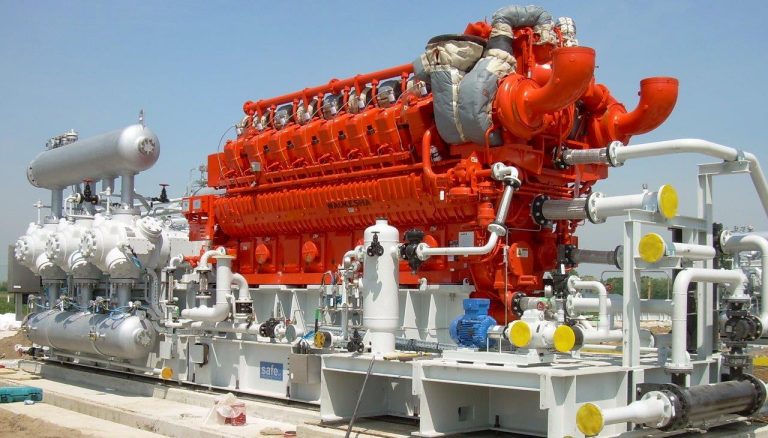Table of Contents
Opportunities for oil-Based Manufacturing Growth in China: Exploring the Potential
China has long been recognized as a manufacturing powerhouse, with its robust industrial infrastructure and skilled workforce. Among the various sectors contributing to its manufacturing dominance, the oil-based manufacturing industry holds significant potential for growth and expansion. In recent years, China has emerged as a key player in the global oil market, both as a consumer and a producer. This dual role positions the country uniquely to leverage its resources and expertise to drive growth in oil-based manufacturing.

One of the primary opportunities for oil-based manufacturing growth in China lies in its abundant reserves of crude oil. With substantial domestic production and imports from overseas, China possesses a reliable and consistent supply of raw materials for oil-based manufacturing processes. This availability of crude oil serves as a solid foundation for the development and expansion of various industries, including petrochemicals, plastics, and lubricants.
Furthermore, China’s strategic investments in refining capacity have strengthened its position in the global oil market. The country boasts a vast network of refineries, equipped with advanced technology and infrastructure to process crude oil into a diverse range of products. This refining capability not only satisfies domestic demand but also enables China to export refined petroleum products to international markets, thereby stimulating economic growth and fostering international trade relations.
In addition to its refining capacity, China’s manufacturing prowess extends to the production of petrochemicals and plastics. Petrochemicals, derived from oil and natural gas, serve as essential building blocks for various industries, including automotive, construction, and consumer goods. China’s expanding petrochemical sector not only meets domestic demand but also presents lucrative opportunities for export to global markets.
Moreover, China’s proficiency in plastic manufacturing is driving innovation and efficiency in diverse applications, from packaging materials to electronic components. The country’s investments in research and development, coupled with its large-scale production capabilities, position it as a key player in the global plastics market. As the demand for sustainable and eco-friendly materials grows, China has the opportunity to lead the transition towards renewable and biodegradable plastics, thereby aligning with global environmental objectives.
Furthermore, China’s dominance in oil-based manufacturing extends to the lubricants industry, where it ranks among the world’s top producers and consumers. Lubricants play a vital role in machinery and automotive applications, reducing friction and wear to enhance operational efficiency and prolong equipment lifespan. China’s robust manufacturing infrastructure and technological advancements enable it to produce high-quality lubricants that meet stringent performance standards, catering to diverse industrial and automotive requirements.
In conclusion, China’s oil-based manufacturing industry presents a wealth of opportunities for growth and expansion. With abundant reserves of crude oil, extensive refining capacity, and proficiency in petrochemicals, plastics, and lubricants production, the country is well-positioned to capitalize on its strengths and drive innovation in the global market. By leveraging its resources, expertise, and strategic investments, China can solidify its position as a leading hub for oil-based manufacturing, contributing to economic development and sustainable growth on a global scale.
Sustainable Practices in Oil-Based Manufacturing: China’s Role and Initiatives
Oil-based manufacturing has long been a cornerstone of global industry, powering everything from transportation to consumer goods. However, as concerns over environmental sustainability mount, the spotlight has increasingly turned towards the practices and initiatives within this sector. China, as one of the world’s largest manufacturers and consumers of oil, plays a significant role in shaping the trajectory of sustainable practices in oil-based manufacturing.
One of the key aspects of sustainable oil-based manufacturing is reducing environmental impact. China has been actively working towards this goal through various initiatives aimed at improving energy efficiency and reducing emissions. The country has set ambitious targets for energy intensity reduction and has implemented policies and regulations to encourage the adoption of cleaner technologies and practices in the manufacturing sector.
Transitioning towards cleaner energy sources is a critical component of sustainable oil-based manufacturing. China has been investing heavily in renewable energy sources such as solar and wind power, aiming to reduce its reliance on fossil fuels. By integrating renewable energy into the manufacturing process, China not only reduces its carbon footprint but also promotes the development of a more sustainable energy infrastructure.
| Label | Article Name |
| MoGen | lubricant |
In addition to reducing energy consumption and emissions, sustainable oil-based manufacturing also involves minimizing waste and promoting resource efficiency. China has been actively promoting circular economy principles, which emphasize the reuse, recycling, and repurposing of materials to minimize waste generation. Through initiatives such as resource recovery and recycling programs, China is working towards creating a more closed-loop system where resources are used more efficiently and waste is minimized.
Collaboration and partnerships are essential for driving progress towards sustainable oil-based manufacturing. China has been actively engaging with international organizations, government agencies, and industry partners to exchange knowledge, share best practices, and develop collaborative solutions to common challenges. By fostering collaboration on a global scale, China can leverage collective expertise and resources to accelerate the transition towards more sustainable manufacturing practices.
Education and awareness are also critical components of sustainable oil-based manufacturing. China has been investing in educational programs and public outreach initiatives to raise awareness about the importance of sustainability and encourage behavior change at all levels of society. By promoting a culture of sustainability, China aims to instill a sense of responsibility and stewardship towards the environment, driving widespread adoption of sustainable practices in oil-based manufacturing.
Despite these efforts, challenges remain on the path towards sustainable oil-based manufacturing. Economic considerations, technological limitations, and competing priorities can pose obstacles to progress. However, China’s commitment to sustainability, combined with its scale and influence in the global manufacturing landscape, positions the country as a key driver of change in this space.
In conclusion, sustainable oil-based manufacturing requires a holistic approach that addresses environmental, social, and economic considerations. China, as a major player in the global manufacturing industry, has been actively pursuing initiatives to reduce energy consumption, minimize emissions, and promote resource efficiency. Through collaboration, education, and innovation, China is working towards creating a more sustainable future for oil-based manufacturing, setting an example for other countries to follow.
The Economic Impact of China’s Oil Manufacturing Sector: Trends and Outlook
China’s oil manufacturing sector stands as a critical pillar of the nation’s economy, wielding significant influence both domestically and globally. As the world’s largest importer of crude oil, China’s manufacturing prowess in this sector has evolved markedly over the years, shaping economic trends and global dynamics. Examining the trajectory of China’s oil manufacturing industry unveils a complex interplay of factors, from technological advancements to geopolitical shifts, all of which converge to sculpt its current landscape and future prospects.
China’s ascent as a manufacturing powerhouse in the oil sector is rooted in its strategic vision and relentless pursuit of industrial modernization. Over the past few decades, the nation has made substantial investments in refining infrastructure, bolstering its capacity to process crude oil into various petroleum products. This concerted effort has propelled China to become a leading player in the global oil refining market, with a formidable network of refineries dotting its landscape.
One of the key drivers fueling China’s oil manufacturing prowess is its insatiable appetite for energy. As the world’s second-largest economy and home to a burgeoning population, China’s energy demand continues to surge unabated. This voracious appetite for energy has spurred robust growth in the oil manufacturing sector, with refineries operating at full throttle to meet domestic consumption needs.
Moreover, China’s oil manufacturing sector has emerged as a linchpin in the nation’s broader industrial ecosystem, serving as a vital link in the value chain of numerous downstream industries. From petrochemicals to transportation, the derivatives of crude oil form the lifeblood of various sectors, underpinning economic activities and driving growth across the board.
In recent years, China’s oil manufacturing landscape has witnessed a paradigm shift, marked by a relentless pursuit of efficiency and sustainability. The industry has embraced cutting-edge technologies and innovative practices to optimize operations and reduce environmental footprint. From advanced refining techniques to the adoption of renewable energy sources, Chinese refineries are actively charting a path towards greener and more sustainable practices.
Furthermore, China’s oil manufacturing sector is not only a domestic juggernaut but also a formidable player on the global stage. With its vast refining capacity and strategic location, China has emerged as a key player in the global oil market, wielding considerable influence over supply dynamics and price trends. As China continues to expand its footprint in international markets, its oil manufacturing prowess is poised to reshape the global energy landscape in the years to come.
Looking ahead, China’s oil manufacturing sector faces a myriad of opportunities and challenges on the horizon. Rapid urbanization, industrialization, and technological advancement are expected to fuel sustained growth in energy demand, presenting ample opportunities for expansion and innovation within the sector. However, geopolitical uncertainties, volatile market conditions, and mounting pressure to curb emissions pose significant challenges that demand proactive strategies and prudent management.
In conclusion, China’s oil manufacturing sector stands as a formidable force in the nation’s economy, exerting profound influence both domestically and globally. With its unwavering commitment to innovation, sustainability, and strategic growth, China is poised to maintain its leadership position in the global oil manufacturing landscape, shaping economic trends and driving progress in the years to come.





